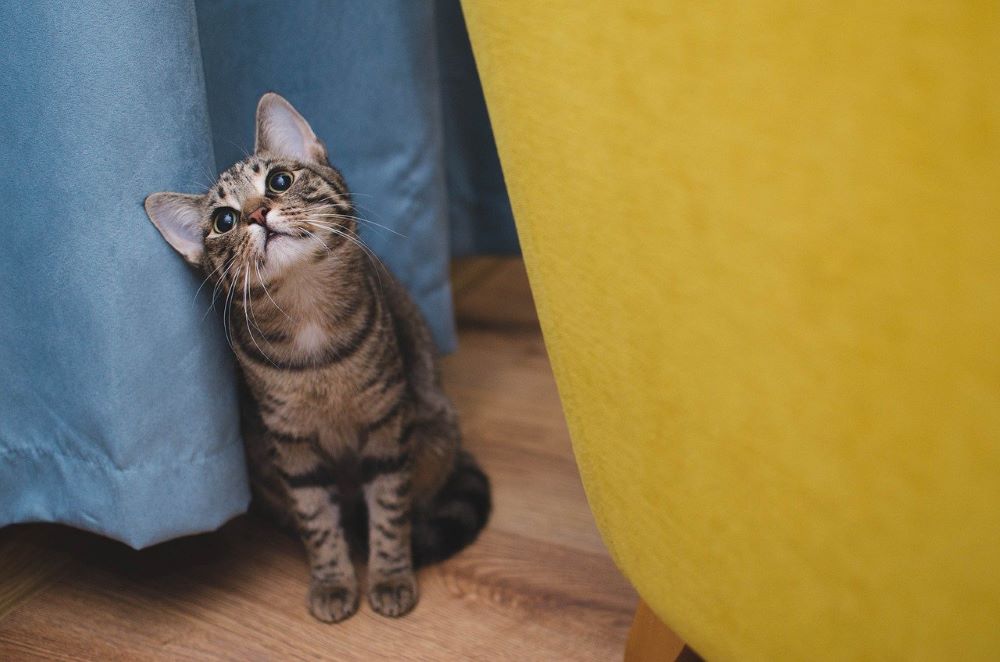
There are countless materials and resources dedicated to kittens, but how do you know the right thing to do when it comes to feeding your gorgeous new kitten?
Read on to explore feline nutrition in detail and find out why it’s so important that every kitten receives the right food during growth.
During the first 6 months of life, kittens experience rapid growth and have specific nutritional requirements for increased levels of protein, energy, and minerals such as calcium and phosphorous. All kittens should eat a complete and balanced kitten formula until they are at least 1 year old. Feeding kittens adult food formula may cause harm because adult food does not provide kittens with all the essential nutrients required for healthy growth.Quick Overview
In short, we’ll be looking at why kittens shouldn’t be eating adult cat food.
Let’s start by exploring what makes a kitten, well … a kitten!
Also Read: 22 Fun Facts About Kittens
All About the Kitten Life Stage
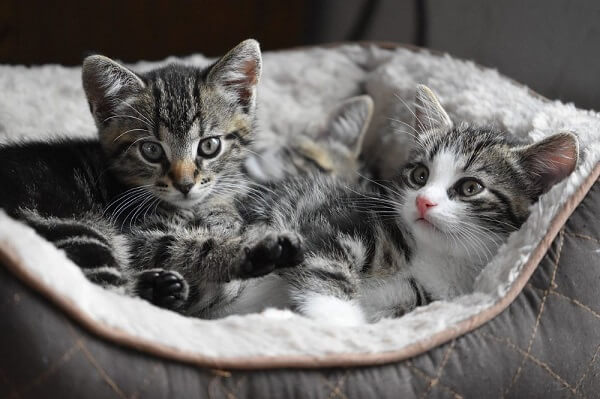
Young kittens experience a period of rapid, intense growth that demands specific nutrition.
There are three well-defined (but arguably four less well-accepted life stages) that all cats experience over the course of a lifetime. These are as follows:
- Growth
- Adult
- Senior
- Geriatric
It is the older cat/geriatric stage that is still considered quite controversial in some circles, but today we’re focusing on the growth or kitten stage. This stage begins at birth, ending when growth ceases at approximately 10 to 12 months of age.
For the first 4 weeks of life, kittens should be able to obtain all of their nutritional requirements from their mother’s milk. At about 4 weeks of age, weaning starts to occur and kittens should be slowly introduced to solid food, with more wet or canned food than dry food over the next four weeks. This is because little kitten teeth can struggle with dry food; canned or wet food is easier to eat.
Also Read: Weaning Kittens: Tips For Successful Weaning
By the time kittens have reached 2 months of age, they should be fully weaned and eating only commercially prepared kitten food, either wet or dry or a combination of both.
During the first 24 weeks of life, kittens experience their fastest growth period. Although they might appear to be fully grown by the time they reach 6 months of age, kittens are still developing on the inside.
In fact, during their first year of life kittens, will increase their body weight by up to 40 to 50 times that when they were born. This is why it’s so important to keep feeding a kitten formula until all of this growing stops.
Also Read: What To Know When Fostering Kittens: 6 Essential Tips
Feeding Kittens: The Nutritional Essentials for Growth
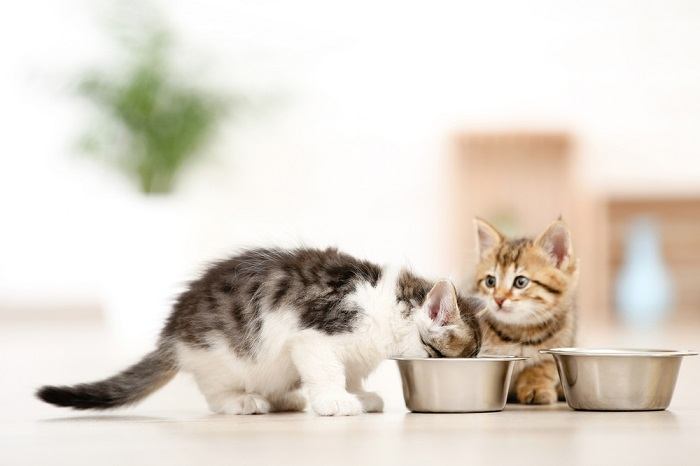
A correctly balanced kitten diet usually contains protein from a variety of different sources.
Protein is the main building block essential for growth. Cats, as obligate carnivores, have a unique requirement for protein, but this is even more important for growing kittens. Protein is fundamental for the formation of muscle, skin, fur, nails, and internal organs, as well as all cellular growth, repair, and regeneration. Also, protein forms the basic structure of hormones, enzymes, and antibodies required for a healthy immune system. In short, protein is essential for life!
Also Read: The 8 Best Kitten Foods
Amino acids, the basic building blocks of protein molecules, can be divided into essential and non-essential categories. Essential amino acids must be provided in food, as the body is unable to create them and for both kittens and cats these food sources must be animal-derived.
However, no single food or protein source will contain all of the amino acids that cats and kittens must obtain from their diet. This is why a correctly balanced kitten diet will generally contain protein from a variety of different sources unless appropriately formulated nutritional supplements are added instead.
Young kittens must have a minimum amount of 30% protein in their diet on a dry matter (DM) basis. This means that when all the water is removed from the food, the dry ingredients should provide a minimum of 30% protein.
Also Read: Best Wet Food For Kittens
Adult cats, on the other hand, require a minimum of 25 to 26% protein on a DM basis, depending on whether the food is formulated in Europe or the United States. Please remember that these are the minimum recommended nutritional requirements for protein, but many cat and kitten foods on the market contain much higher percentages of proteins.
Another key nutrient for growing kittens is fat and the main reason for this is due to its energy capacity. Fat contains 2.5 times more energy than either protein or carbohydrates and young, rapidly growing kittens need much higher levels of energy than adult cats to fuel all that growth.
One of the advantages of this high caloric density means that smaller portion sizes can be formulated to ensure sufficient amounts of energy are contained in quantities of balanced nutrients that won’t overwhelm small stomachs. Approximately 30% of kittens’ energy requirements should actually be provided through protein.
Also Read: How To Introduce A New Kitten To An Older Cat
The omega-3 fatty acids EPA and DHA, whilst not considered specific essential nutrient requirements for growing kittens, are in fact critical for optimal brain and retinal function. A kitten food containing appropriate levels of both DHA and EPA is therefore recommended for optimal growth.
In addition, fat is a vital factor when it comes to taste or palatability and is also used to help absorb and store fat-soluble vitamins, such as pre-formed vitamin A. Vitamin A, just like the fatty acid arachidonic acid, is another essential dietary nutrient for all kittens and adult cats.
Also Read: Best Omega 3 Fish Oil For Cats
Ingredient Quality Is Fundamental
Aside from the different types of nutrients that growing kittens need, the actual source and the quality of that food source is fundamental for appropriate growth.
Kittens must be able to easily access the nutrients contained within their food once it starts to get broken down (or digested) and metabolized in the body. This means that the kitten food should be formulated to ensure sufficient bioavailability and digestibility. This means that the diet should be of a high enough quality to be easily digestible.
Good indicators of quality in cat food are when the type of protein listed on the label comes from an animal and an easily recognizable source such as salmon, lamb, or chicken versus vegetable- or cereal-based proteins.
Also Read: When Will My Cat Stop Hissing at the New Kitten?
Although the latter also contain amino acids that might help to build the profile of nutrients required to create a complete and balanced food, we know that cats require animal sources for their essential amino acids.
Another indicator of high quality is the label. Commercially prepared kitten food should always have a sentence that states “Meets the nutritional requirements of kittens established by the American Association of Feed Control Officials (AAFCO)” or “Complete and balanced nutrition for kittens based on AAFCO feeding trials.” If in Europe, the label would refer to FEDIAF (European Pet Food Industry Federation), which is the European pet food industry association.
Also Read: Cat Giving Birth: What You Need To Know
What About Calcium and Phosphorous?
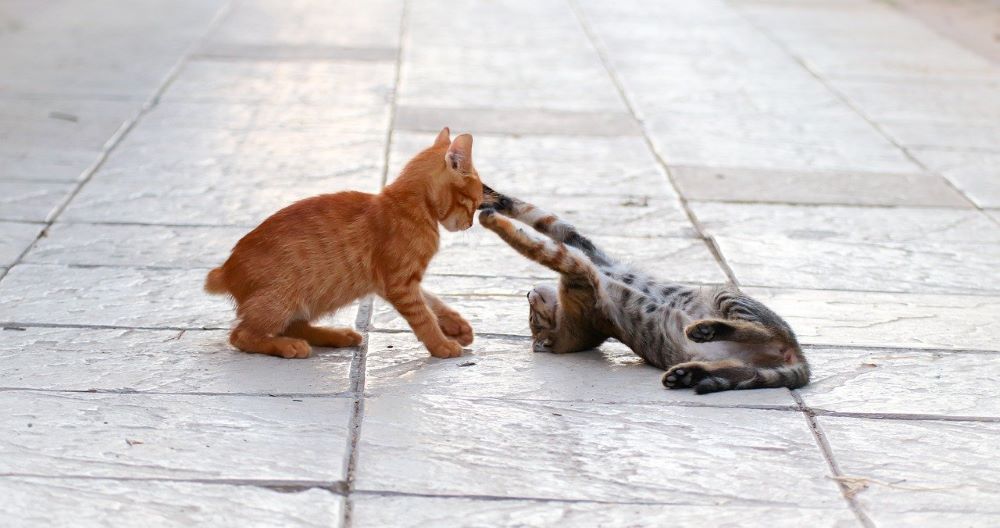
Kittens need calcium and phosphorous, but only in very specific amounts.
Growing kittens have to build bone and muscle very rapidly, so they require increased levels of calcium and phosphorous in their diets compared to adult cat foods. It’s important to remember though that the ratio of both of these minerals is very sensitive and needs to be kept within a narrow margin of safety.
Commercial kitten foods will have formulated the diet to meet these nutritional requirements for growth. Consequently, supplements should never be added to kitten food. If calcium supplements are added to a commercially prepared kitten food there is a large risk of inadvertently causing bone, tooth, and other growth deformities.
Also Read: How To Clean Your Cat’s Litter Box
Final Thoughts
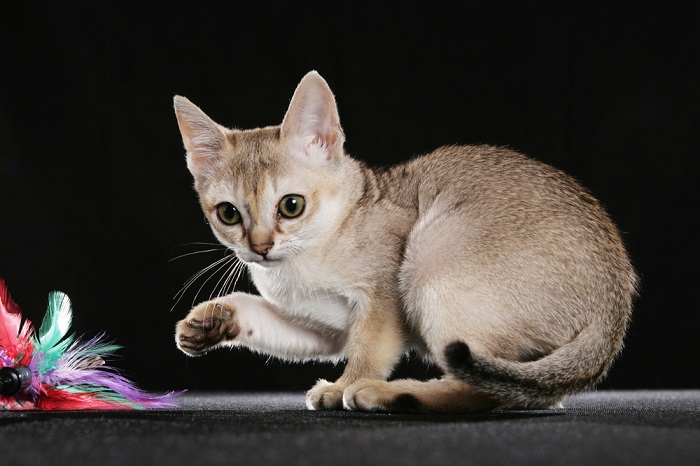
Ingredients in kitten food should be high quality to ensure the nutrients are easily digestible.
Kittens have a lot of growing up to do in a very short space of time. It is because of this that they shouldn’t be given adult or senior cat food for the first year of life. Kittens are actively growing throughout these 12 months and have specific requirements for increased levels of protein, energy, and minerals such as calcium and phosphorous.
In addition, all the ingredients in kitten food should be of high enough quality to ensure that the nutrients are easily digestible, as well as being correctly balanced and in proportion to ensure optimal growth.
Last but not least, always ensure your kitten has plenty of available fresh water. This is the most vital nutrient for cats of all ages!
Frequently Asked Questions
When can kittens eat adult cat food?
Only when your cat is 1 year old is it time to switch to an adult maintenance formula adult cat food.
Can kittens eat adult wet food?
It's important to remember that kittens have different nutritional needs than adult cats. Therefore, feeding them adult wet food formula may not provide your kitten with all the essential nutrients required for healthy growth.
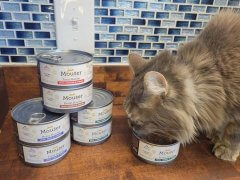
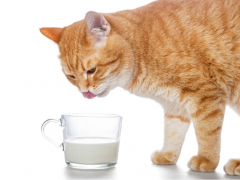
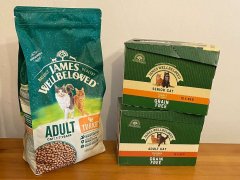
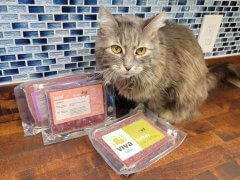

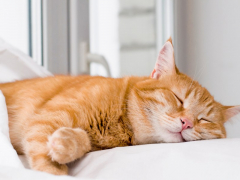
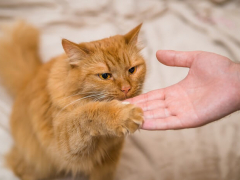

hello.. I have a 3 month old kitten.. I feed him wellness core., he doesn’t seem to be gaining weight..
how much a day should I be feeding him??
thanks
Hi Marianna, Wellness CORE recommends that you feed a 3-month old kitten until they’re full 3-4 times a day, so there aren’t any specific measurements to work with. If your kitten isn’t gaining weight, you may want to double-check that he’s in good health and not suffering from any issues that are inhibiting his growth. Good luck!
Hang in there Marianna, I just adopted 2 kitties and they too are on Wellness core kitten food. They’re gaining weight slowly and their appetites are inconsistent, but that’s improving each day. Neither is very food motivated and they would rather play or wrestle each other than eat. My oldest (born 04/04/20) is starting to gobble down his Wellness food and he’s really starting to take off. This is a great site with interesting advice and content. Thank you!
My mother just took on a 1 month old kitten back in May. We believe she may have been born in April. My mother had to find kitten formula because she believe the kitten might have been taken too early. Now it’s almost October. She’s grown very quickly. If she was born in April then it’s possible she’s 5 months. She’s a very lean and slightly toned. My mother thought she had some lacking but the vet never detected any problems. We feed her a combination of Science Diet, which is a grain free dry (which they never had when my two cats were alive) for kittens. She eats it daily. Sometimes it’s all she wants. As for the wet food it’s whatever food Science diet has for kittens. For some reason there isn’t much of a variety. You have the chicken Roasted Chicken & Rice medley, Chicken Dinner, Turkey Dinner, Savory Salmon and the Chicken and liver. It seems since the economic issues, a lot of flavors for kittens has disappeared. Only varieties exist on the adult line. Sometimes she doesn’t want the kitten food. We’ll put it down, she’ll eat some and then leave it. So I tried giving her some of the adult food that was fish made and she ate it. She is finicky, but she’ll eat her dry all day. And no she’s not a grazer. I think that maybe she’s concentrating on the dry to compensate for what she doesn’t like in the wet during the day. I know they say that they are supposed to eat 3 meals a day because they are growing but every time we put wet kitten food out unless it’s something she likes she won’t eat it unless she’s hungry. Otherwise it just goes to waste. She eats when she feels like it. So putting down food doesn’t mean she’ll eat it. We don’t buy large cans. I figure the one thing we can try is maybe somehow forcing her to eat more of the wet food. I think by my mom constantly giving her dry and how it tastes she wants it more. But I wonder if it is okay to just give her the adult since there is more variety? Is it okay to give her adult as she’s growing fast.
Hi Maxwell, have you considered expanding beyond the Hill’s Science Diet lineup? This would open up a lot more options for you, including some foods formulated to be complete and balanced for all life stages, meaning they’re appropriate for both kittens and adult cats. This might be the best option for your cat. At her age, I wouldn’t advise switching to an adult food or incorporating foods formulated for adults only, since they lack some of the nutritional density that your kitten will require even as she nears a year of age.
Can kittens over eat?
I have 4 cats – 2 kittens that showed up on our property, and 2 older cats we recently adopted. One has kidney disease. We feed the 2 older cats in different rooms and the kittens in another room together. The kittens are about 4 months. Everyone gets primarily wet food though i give the non CKD adult and the kittens some dry food (Orijen) as a supplement. We mostly use Weruva foods.
The boy kitten, Aspen, is a vacuum. He’s never full! He’ll finish his food and then go for his sister’s, eat any scraps the adults leave behind (including the low phosphorus food!). He’s just so fast and he gobbles it up before no can catch him.
I’m worried that he’s overeating. Is that a thing for kittens? He’s definitely growing and is already about twice the size as his sister.
Just keep an eye on his weight and size using a body condition score chart. I wouldn’t cut back on his food options until you know for sure that there’s some excess weight gain going on.